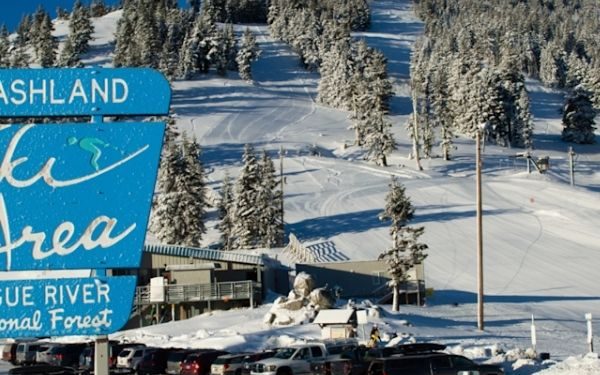A new Senate bill could dramatically affect the future of Oregon’s ski resorts. Senate Bill 1196 aims to ease liability requirements for recreation areas, potentially lowering insurance costs and making coverage more accessible for businesses like ski resorts. However, it also strengthens liability waivers, making it harder for injured patrons to hold businesses accountable.
This debate intensified after Special Safehold Risk, a major insurer covering ski areas like Mt. Hood Meadows and Timberline, pulled out of Oregon. The company cited unsustainable operating costs driven by the state’s liability laws. Safehold’s exit leaves just one insurer—MountainGuard—available for the state’s 12 ski resorts.
Senate Bill 1196 follows in the footsteps of House Bill 3140, which would require liability waivers for anyone participating in recreational activities and shield businesses from lawsuits over ‘ordinary negligence.’ The goal: protect businesses from soaring insurance costs and prevent them from closing or relocating, thereby preserving Oregon’s rich recreation offerings.
The bill has gained support from major players in Oregon’s outdoor scene, including Mt. Bachelor, Timberline, the Oregon Outdoor Alliance, and OARS Whitewater Rafting. They argue the legislation is vital to keeping recreational access affordable and available—not just for individuals, but also for nonprofits and the broader tourism industry.
Smaller operators like Mt. Ashland, a nonprofit ski area, have also voiced concerns over rising insurance premiums. The bill could help them stay in operation by reducing the financial burden caused by liability coverage.
Eric Morgan, claims manager for Safehold, testified that while the company insures ski areas in 37 states, Oregon alone accounts for 20% of its nationwide losses up to $1 million—and 50% of losses between $1 million and $10 million. He supports Senate Bill 1196 as a solution to these unsustainable costs.
Dave Byrd of the National Ski Areas Association added that Oregon has the most challenging litigation climate of all the states Safehold covers, mainly due to weak enforcement of waiver protections. General managers from Mt. Ashland and Timberline echoed these concerns, stressing the urgency of passing the bill.
Still, the legislation has drawn strong opposition. Individuals like Joel Shaich and Myles Bagley—both paralyzed in ski accidents—have spoken out against it. They argue the bill undermines the public’s right to hold businesses accountable for negligence. Although it would still allow claims of gross negligence, critics say the threshold for proving such claims is too high and effectively gives businesses a free pass.
Supporters counter that failing to act could lead to a loss of recreational access across the state, affecting not only ski resorts but many other low-risk outdoor businesses, nonprofits, and the communities they serve.
Lawmakers face a looming June 29, 2025 deadline to finalize the bill. Without quick action, resorts like Timberline, which operates into the summer, could be left without insurance and forced to shut down.











